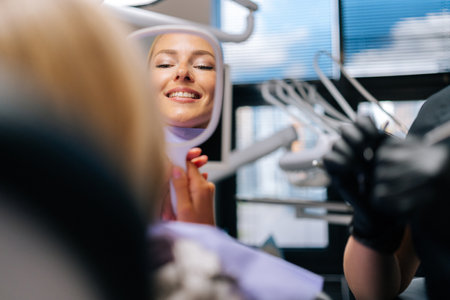Defining Celebrity Culture in the UK
In the United Kingdom, celebrity culture holds a distinctive place within society, shaped by a rich tapestry of history, tradition, and evolving media landscapes. Unlike other global contexts, where celebrity status may be closely linked to Hollywood glamour or social media stardom alone, British celebrity encompasses a broader spectrum. Traditional icons such as members of the Royal Family, revered actors from stage and screen, legendary musicians, and acclaimed athletes have long captured public fascination. Figures like Sir David Attenborough and Dame Judi Dench exemplify the classic British ideal of celebrity—grounded in achievement, public service, and a sense of national pride.
Contemporary British celebrities often blend these traditional values with modern platforms. Reality television stars from shows like “Love Island” or influential YouTubers such as Zoella represent a new wave of fame, driven by digital engagement yet still subject to uniquely British expectations around humility and authenticity. The blend of reverence for heritage and openness to innovation means that British celebrities are not only trendsetters but also custodians of cultural values. Compared to their global counterparts, British icons tend to exert influence less through overt self-promotion and more through subtlety, wit, and relatability—a nuance that deeply affects how cosmetic trends are received and interpreted across the UK.
Historical Perspectives: British Attitudes Towards Beauty and Aesthetics
To truly appreciate how celebrity influence currently shapes cosmetic innovation and acceptance in the UK, it is essential to understand the historical context of British beauty standards. Over the centuries, British attitudes towards beauty and aesthetics have evolved considerably, reflecting broader societal values and media influences.
The Evolution of Beauty Ideals
Historically, British society prized modesty, naturalness, and restraint in personal appearance. During the Victorian era, for instance, pale skin and demure features symbolised purity and social status. Public displays of cosmetic enhancement were often frowned upon, perceived as frivolous or even morally suspect. However, shifts began to emerge in the 20th century, particularly post-World War II, as cinema and fashion magazines introduced new ideals of glamour and sophistication.
Societal Values and Media Influence
The role of media—first print, then television, and now digital platforms—has been pivotal in redefining what is considered beautiful or acceptable. The increasing visibility of public figures and celebrities has challenged traditional norms, encouraging a more open discussion about self-improvement and cosmetic interventions.
Timeline of Changing Attitudes
| Era | Beauty Standard | Societal Attitude Toward Cosmetics |
|---|---|---|
| Victorian (1837–1901) | Pale skin, natural look | Skeptical; viewed enhancements as improper |
| Post-War (1940s–1960s) | Glamour, Hollywood influence | Gradual acceptance; emergence of makeup use |
| Late 20th Century | Diversity in trends; pop culture icons | Increasing normalisation of cosmetic products |
| 21st Century | Individuality & enhancement through procedures | Mainstream acceptance; driven by celebrity culture and social media |
The Shift to Acceptance
This gradual transformation underscores how societal values have both resisted and embraced change. Today, the British public tends to value authenticity while also recognising the role of cosmetic enhancements in self-expression. This nuanced perspective sets the stage for understanding how celebrities now act as powerful catalysts for innovation and wider cultural acceptance within the UK’s evolving beauty landscape.
![]()
3. The Modern UK Celebrity: Leading Trends in Cosmetic Procedures
In contemporary British society, celebrities have become powerful arbiters of beauty standards, and their influence stretches far beyond the confines of red carpets or television screens. From pop icons and Premier League footballers to social media influencers, these public figures play a pivotal role in setting trends for cosmetic procedures across the UK. Their choices often spark nationwide conversations and rapidly shift public perceptions about what is considered attractive or aspirational.
The impact of British celebrities on cosmetic innovation can be observed through the increasing demand for certain treatments that align with the looks popularised by famous personalities. For instance, many young people are inspired by the chiselled jawlines and refined features displayed by actors and reality TV stars. This has led to a surge in non-surgical enhancements such as dermal fillers and “tweakments”—subtle procedures designed to enhance natural beauty without drastic change. The accessibility of these treatments, combined with open endorsements by well-known figures, has demystified cosmetic procedures and made them more socially acceptable.
Sporting heroes also contribute significantly to this cultural shift. Footballers and athletes who share their own journeys with hair transplants or dental veneers help break down stigma, particularly among male audiences. Their openness encourages broader acceptance and normalisation of seeking professional aesthetic treatments, challenging outdated notions that cosmetic enhancements are reserved for women or the entertainment industry alone.
Social media influencers represent a new wave of celebrity whose reach rivals traditional stars. Their daily posts, video diaries, and before-and-after stories create an intimate connection with followers, allowing them to showcase real-time results and honest reflections on cosmetic experiences. This transparency fosters trust and curiosity among fans, often resulting in spikes in interest for specific innovations such as skin boosters or minimally invasive facelifts.
Ultimately, the modern UK celebrity—regardless of background—serves as both trendsetter and advocate for evolving beauty ideals. Their willingness to discuss personal transformations publicly not only drives consumer demand but also encourages the industry to develop safer, more effective techniques tailored to British preferences and expectations. Through their influence, they continue to shape the landscape of cosmetic acceptance and innovation throughout the United Kingdom.
4. Social Media, Reality TV, and Changing Aspirations
In recent years, the intersection of social media platforms and reality television has become a driving force in shaping British attitudes towards cosmetic treatments. Platforms like Instagram, along with hit reality shows such as ‘Love Island,’ have created a new landscape where celebrity trends are rapidly amplified and disseminated to the public. This phenomenon has contributed significantly to the growing acceptance and demand for aesthetic procedures across the UK.
The Role of Instagram in Setting Beauty Standards
Instagram, with its visually-driven content, offers influencers and celebrities a powerful stage to showcase their latest looks—often enhanced by cosmetic interventions. British influencers frequently share their journeys with cosmetic procedures, from subtle tweaks to more pronounced changes, normalising these practices among their followers. The curated perfection presented on feeds inspires many young Britons to consider similar enhancements, reinforcing an aspirational beauty ideal that is both accessible and attainable.
Reality TV’s Influence: The ‘Love Island’ Effect
Reality TV programmes, particularly ‘Love Island,’ have played a pivotal role in this cultural shift. Contestants openly discuss their cosmetic routines, while their transformations become talking points in tabloids and online forums. The widespread exposure of post-procedure results—whether it’s lip fillers or teeth whitening—has led viewers to perceive these treatments as mainstream and desirable. This visibility not only drives curiosity but also reduces stigma around seeking cosmetic care.
Comparative Impact Table: Instagram vs. Reality TV
| Aspect | Reality TV (Love Island) | |
|---|---|---|
| Influence Speed | Instantaneous through stories & posts | Episodic but high-impact moments |
| Audience Engagement | Direct interaction via comments & DMs | Community discussions on social forums |
| Aspiration Level | Aspirational lifestyles curated daily | Relatable transformation narratives |
| Cultural Reach | Younger digital natives nationwide | Mainstream households across the UK |
| Treatment Trends Amplified | Lip fillers, contouring, skincare regimens | Teeth whitening, body sculpting, hair transplants |
Evolving Aspirations and Societal Acceptance
The constant exposure to celebrity-endorsed aesthetics has shifted public aspirations in Britain. Cosmetic innovation is no longer reserved for A-listers; it is now part of everyday conversations among friends and within families. This democratisation of beauty standards reflects a broader acceptance of personal enhancement as an individual choice rather than a taboo subject. As social media continues to evolve and reality TV remains a staple of British culture, the dialogue around cosmetic treatments is likely to become even more open and supportive, further fuelling innovation within the industry.
5. Cultural Nuances: The British Perspective on Cosmetic Acceptance
British culture possesses a distinctive approach to cosmetic enhancement, rooted in traditions of modesty, understatement, and authenticity. Unlike some global counterparts where bold transformations are openly celebrated, the British sensibility leans towards subtlety—prioritising natural-looking results that maintain an individual’s inherent character. This preference is often reflected in the nation’s leading aesthetic trends, which favour refined tweaks over dramatic changes, ensuring enhancements remain discreet and congruent with one’s identity.
Regional attitudes across the UK further shape this landscape. In metropolitan centres like London and Manchester, there is a slightly greater openness towards visible cosmetic procedures, influenced by cosmopolitan lifestyles and exposure to diverse celebrity role models. Conversely, rural communities and smaller cities may exhibit a more conservative stance, with social acceptance hinging on preserving traditional values of restraint.
Generational differences are equally significant. Younger Britons—especially Millennials and Gen Z—are more likely to embrace cosmetic innovation, drawing inspiration from social media influencers and reality TV personalities who champion self-expression and personal empowerment. Older generations, meanwhile, typically value subtle improvements that respect the ageing process, reflecting long-standing British ideals of grace and composure.
This nuanced perspective has directly shaped how celebrities navigate their own aesthetic journeys in the public eye. British stars frequently emphasise transparency about their choices while advocating for moderation and authenticity. Their influence encourages a national dialogue that balances aspiration with realism—promoting cosmetic acceptance without compromising cultural values of humility and genuineness.
Ultimately, these cultural nuances underpin the UK’s unique contribution to global cosmetic innovation: blending contemporary trends with time-honoured sensibilities, allowing individuals to enhance their appearance in ways that feel both personally empowering and socially harmonious.
6. The Future of Cosmetic Innovation in the UK
Looking ahead, the landscape of cosmetic medicine in the UK is poised for dynamic evolution, fuelled by both technological advancements and the ever-present influence of British celebrity culture. As public fascination with high-profile figures continues to shape perceptions and expectations, clinics are increasingly compelled to adopt cutting-edge procedures that reflect both global trends and uniquely British sensibilities.
One of the most significant emerging trends is the rise of minimally invasive treatments that promise natural results with little downtime. Driven by celebrities who advocate for subtle enhancements over dramatic transformations, these procedures are quickly gaining traction among a discerning British clientele. Innovations such as advanced injectables, non-surgical facelifts, and personalised skin therapies are set to become mainstays within cosmetic practices across the country.
Technological progress is also expected to transform patient experiences. AI-driven consultations, 3D imaging for treatment planning, and bespoke skincare solutions tailored to individual genetic profiles are just some of the innovations on the horizon. Such advancements not only enhance safety and efficacy but also align with the meticulous standards that define British medical practice.
Moreover, sustainability and ethical sourcing are likely to play a pivotal role in shaping future developments. With celebrities increasingly vocal about environmental responsibility, there will be greater demand for eco-friendly products and transparent supply chains within the cosmetic industry. This shift reflects a broader cultural movement towards conscious consumerism, which resonates strongly with British values.
The continued influence of British celebrity culture cannot be underestimated. Public endorsements from admired personalities—ranging from film stars to social media influencers—will remain instrumental in normalising new treatments and breaking down lingering taboos around cosmetic enhancement. Their openness about personal journeys fosters a supportive environment where individuals feel empowered to explore aesthetic options without stigma.
In summary, the future of cosmetic innovation in the UK will be defined by a synergy between technological breakthroughs, evolving cultural attitudes, and the powerful impact of celebrity advocacy. As these forces converge, Britain is set to remain at the forefront of safe, sophisticated, and socially conscious cosmetic medicine.


